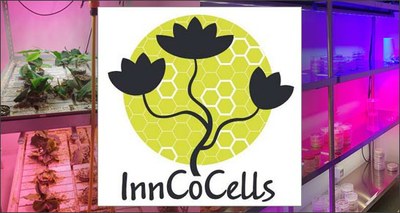Environment: Safe and sustainable cosmetics from plants, agricultural waste and plant cells
9/12/2021
 Food plants like ginger and basil, agricultural waste and plant cells to create clinically effective, safe, sustainable cosmetics. This is the goal of the project InnCoCells, funded by the EU Horizon 2020 program with 7.9 million euro, which involves 12 countries and 17 partners including ENEA and Arterra Bioscience for Italy and the Technical Research Center of Finland (VTT) as coordinator. The plants used to develop this new generation of cosmetics include turmeric, kencur, peony, cranberry, jasmine and licorice.
Food plants like ginger and basil, agricultural waste and plant cells to create clinically effective, safe, sustainable cosmetics. This is the goal of the project InnCoCells, funded by the EU Horizon 2020 program with 7.9 million euro, which involves 12 countries and 17 partners including ENEA and Arterra Bioscience for Italy and the Technical Research Center of Finland (VTT) as coordinator. The plants used to develop this new generation of cosmetics include turmeric, kencur, peony, cranberry, jasmine and licorice.
In particular, ENEA will deal with the chemical characterization of species and bioactive molecules through metabolomic analyses and the development of cellular and soilless cultures of kencur, ginger, cress, perilla, basil and tomato plants.
“The way in which cosmetic ingredients are discovered, manufactured and converted into validated products suitable to the market, that attract today's consumers- increasingly attentive to quality and the environment- is undergoing a revolution”, pointed out Gianfranco Diretto at the ENEA Biotechnology Laboratory. “In fact, sustainable and industrial-scale production approaches will be adopted which do not resort to animal testing but employ bioassays on cell lines, a type of scientific experiment that involves subsequent testing on human volunteers”.
Arterra Bioscience, a company specializing in research and development in the field of biotechnology, will deal with the development of the growth conditions of the plant cell cultures of interest - cranberry, lychee, jasmine, licorice, hyssop and peony - and the characterization of biological activity of plant extracts.“ InnCoCells is in line with the mission of the company, increasingly committed to the development of active ingredients for a sustainable and highly effective cosmetic market", pointed out Maria Gabriella Colucci, founder and CEO of Arterra.
"One of the main principles of the project’s approach is to grow plants currently at risk of over-exploitation sustainably and at a low cost, to ensure the new ingredients are no threat to biodiversity or environmental safety," pointed out Kirsi-Marja Oksman, project coordinator of the VTT. "One of the key principles of the project’s approach is in fact to extensively validate the biological activity of all the ingredients developed thanks to the participation of several partners who will perform a wide range of tests on different cell lines. "
Specifically, the researchers will pursue several key objectives, including the identification of 10 plant species with molecules of interest and the development of a process to validate the presence of natural bioactive molecules in plants, verifying the activity of at least 50 ingredients. Among these, 20 will then undergo production processes in cell cultures or plants grown in greenhouses, in the field or in hydro-aeroponic conditions. The team will also work on the development of processes from at least 10 supply chains of agricultural waste and innovative and sustainable technologies for the production, on a pilot scale, of at least 10 active ingredients, in addition to gathering regulatory and product safety dossiers and environmental assessments. Finally, the know-how developed will be shared with stakeholders of the cosmetic industry and end users, to promote ingredients and develop products meeting consumers’ demand.
The other 14 partners are: Evologic Technologies (Austria); VIB-UGent Center for Plant Systems Biology, ILVO - Flanders Research Institute for Agriculture, Fisheries and Food, EPSO - European Plant Science Organisation and AE - Add Essens (Belgio); Ecomaat (Bulgaria); PAT - Plant Advanced Technologies and Cosmetic Valley (Francia); TUDA - Technische Universität Darmstadt e Merck (Germania); ALT - Alternative Plants (Lettonia); LIST - Luxembourg Institute of Science and Technology (Lussemburgo); ScandiDerma (Norvegia); TRM - Twyman Research Management (Regno Unito).
For more information please contact:
ENEA, Biotechnologies Laboratory:
Gianfranco Diretto gianfranco.diretto@enea.it
Eugenio Benvenuto eugenio.benvenuto@enea.it
Arterra Bioscience
Gabriella Colucci gcolucci@arterrabio.it
Marida Bimonte marida@arterrabio.it
Kirsi-Marja Oksman kirsi-marja.oksman@vtt.fi
Richard Twyman richard@writescience.com
